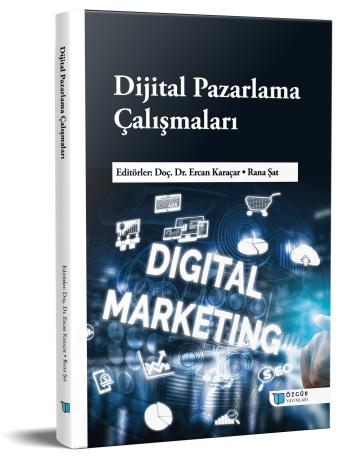
Digital Customer Experience and Customer Relationship Management
Chapter from the book:
Karaçar,
E.
&
Şat,
R.
(eds.)
2025.
Digital Marketing Studies.
Synopsis
It is seen that every innovation that emerges and is made available in the field of technology brings about change in the functioning of social and institutional life. The behavior patterns and habits of individuals have started to shift towards a new axis emerging with the development of technology. For commercial organizations, it can be said that there are changes in their relations with consumers and in their communication with all environmental elements. With the rapid changes in technology, traditional marketing has been replaced by new generation marketing types such as digital marketing and online marketing. Technology-oriented approaches in stages such as data collection, measurement and evaluation of digital marketing approaches provide clearer results. Today's digital revolution has led to major transformations in tourism marketing as in many other fields. The rapid development of technology has forced tourism businesses, which are the most important stakeholders of the tourism sector, to go beyond the traditional marketing approach and use digital marketing tools effectively. The rapid increase in competition in the tourism sector in the age of digital transformation and the need for new methods and techniques by businesses indicate a new transformation process in terms of marketing tools and methods used in the sector's relationship with marketing. Thanks to digital marketing channels, it is seen that the interaction between a brand, a business or an organization and its customers has become easier, faster and advantageous for both parties. Brands that use a multichannel marketing strategy, which is called a marketing channel, are one step ahead in every sense. For example, by using all the tools of the multichannel marketing channel (mobile phones, websites, mobile applications of the brand), customers can maximize brand satisfaction by placing orders to businesses in the food and beverage sector more easily, accurately and quickly. For this reason, the presence of brands in the digital space and the effective use of digital marketing channels can increase brand sustainability and minimize customer registrations.
The transformation of word-of-mouth marketing technique, which is one of the important tools of traditional marketing and transforms tourists' vacation experiences that they tell other people into a new touristic demand, into “viral” marketing and the power of technology and digitalization in communication based on sharing experiences can be seen as a clear example of the outputs of the aforementioned transformation process. In today's world where the nature of communication has differentiated and access to information has become much faster, it has brought the communication between businesses and customers to a more advanced dimension. For this reason, digital marketing practices are important for the tourism sector. Digital marketing refers to a new era of online marketing after traditional marketing. In this context, digital marketing uses many digital marketing platform channels such as mobile phones, social media, display advertising, electronic mail, educational, gaming and media platforms that offer digital content, SEO, SEM and many similar digital marketing platform channels and utilizes new methods such as “phenomenon marketing” that shortens the distance between consumers and marketing tools. Phenomenon marketing is considered as a version of viral marketing, which is based on the assumption that consumers are more influenced by people they know, trust and are in their immediate environment during the purchase decision process (Jurisch, Ikas, Palka, & Krcmar, 2012). In this study, the digital transformation process of digital marketing, the history of transition from traditional marketing to digital marketing, digital marketing channels and strategies, metrics in digital marketing, and the importance and usage areas of digital marketing in the tourism sector are primarily included. In addition, it is seen that digital marketing increases the competitiveness of businesses in the field of gastronomy and that they benefit from technology by actively using marketing tools or channels. In this context, the areas of use are mentioned in the section.

